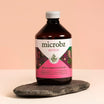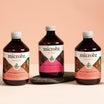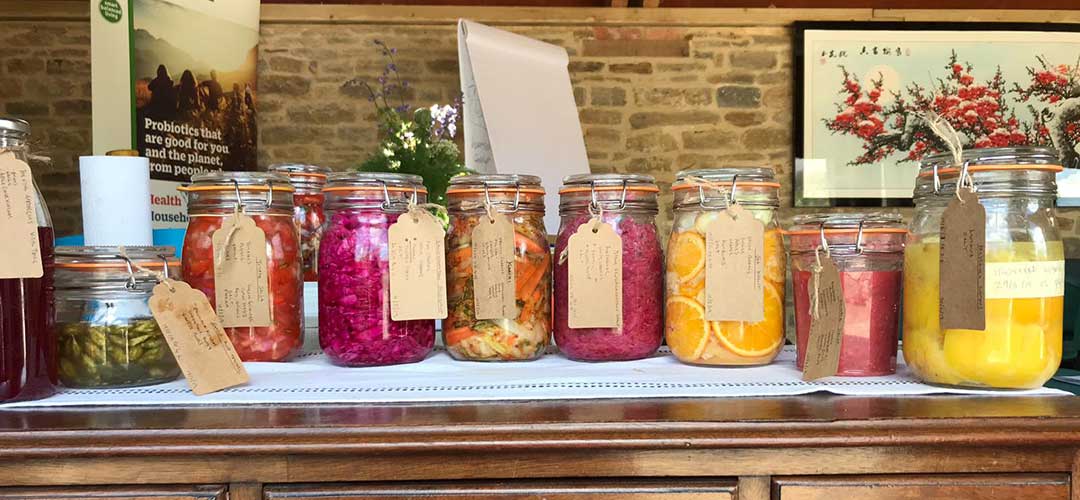We try to include as many healthy foods as possible in our daily diet; one of the healthiest food groups that we're learning more about is prebiotics.
Prebiotic foods are high in special types of fibre that support digestive health. They feed and promote the growth of beneficial bacteria in the gut which help with various health and digestive problems, as well as giving your immune system a well needed boost.
Prebiotic fibre is the non-digestible part of certain prebiotic rich foods that travels through the small intestine, undigested, and reaches the large intestine where it then ferments.
This fermentation process feeds all the friendly bacteria which live there. A great way to help describe this is: Think of your gut as a garden. The seeds are the beneficial bacteria (already in your gut because you're taking a probiotic) and the prebiotic fibre (gained through food) is the water and fertiliser to help the seeds grow and flourish.
Advantages and benefits of prebiotic foods
Prebiotics are highly stable and are usually unaffected either by temperature or long-term storage. They can be added to almost every type of food, drink or supplement without compromising their effectiveness. They are also resistant to the body's enzymes and gastric acids, which means that they are not destroyed, digested, or absorbed as they travel through your digestive system and so reach the large intestine (colon) intact and unaltered.
The health of your gut is closely tied to many other health issues. Your gut needs prebiotics and probiotics together to combat them.
Upping your intake of prebiotics can have benefits such as:
- lowered risk of cardiovascular disease â¢
- healthier cholesterol levels
- better gut health
- improved digestion
- increased calcium absorption
- better hormonal balance
- improved immune system defence
- decreased pathogenic bacteria populations
- lowered inflammation
- autoimmune reactions
Examples of prebiotic foods
Apples: rich in pectin fibre which promotes healthy gut bacteria and reduces bad bacteria
Asparagus: promotes healthy gut bacteria and is rich in prebiotic fibres and antioxidants
Bananas: reduces bloating and increases friendly gut bacteria
Barley: high in beta-glucan fibre and lowers blood sugar levels
Flaxseeds: promotes regular bowel movements and lowers LDL cholesterol
Garlic: promotes good bacteria and prevents harmful bacteria from growing
Jerusalem Artichoke: helps boost your immune system and prevent metabolic disease
Leeks: high in prebiotic inulin fibre and vitamin K
Oats: grain rich in beta-glucan fibre and increases healthy gut bacteria
Onions: rich in inulin to boost your immune system and improves digestion
Do yourself and your gut some good and include more prebiotic foods in your diet. And to help you out, here are some of our favourite prebiotic rich recipes. Enjoy.
Chocolate and Walnut Banana Bread Baked Oats by @Samantha_hadadi.
Baked oats are a fantastic new way of enjoying this super healthy food. They are full of healthy fats, fibre and oats. Yum!
Sweet Potato Crust Pie with Feta, Rocket & Tomato Filling by @The Balanced Kitchen Potatoes are a good source of nutrition too and boast a healthy amount of vitamin C, potassium, B6 and fibre.
Adding prebiotic rich ingredients such as onions and garlic makes this one dish your gut would go crazy for.
Tuck in!
Apple Crumble Cake with Vegan Oat Cream by @Cookyourlife Here is a delicious take on apple crumble, packed with foods high in protein and fibre.
We love a good pudding to finish off a meal, so get baking and enjoy!







